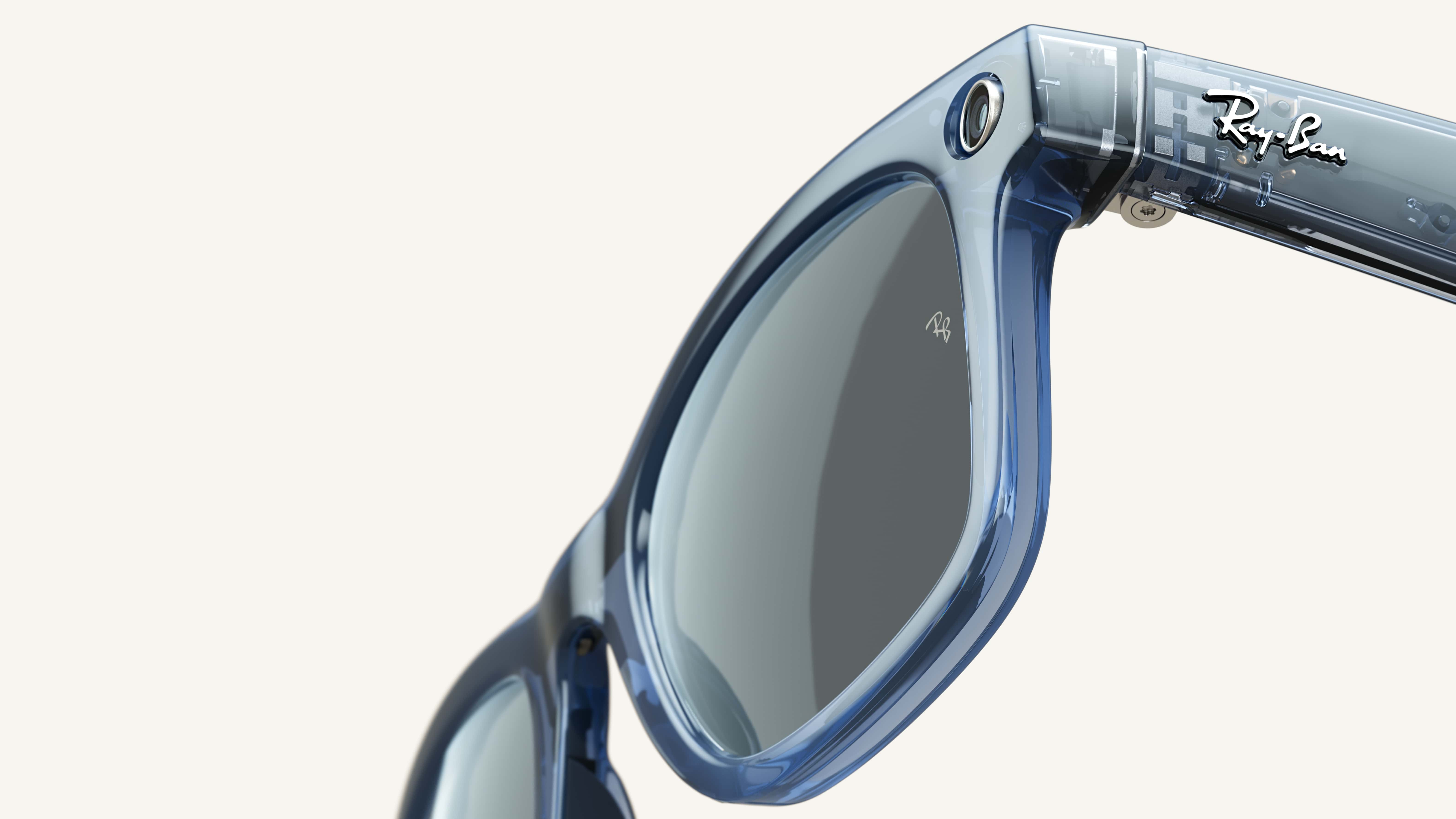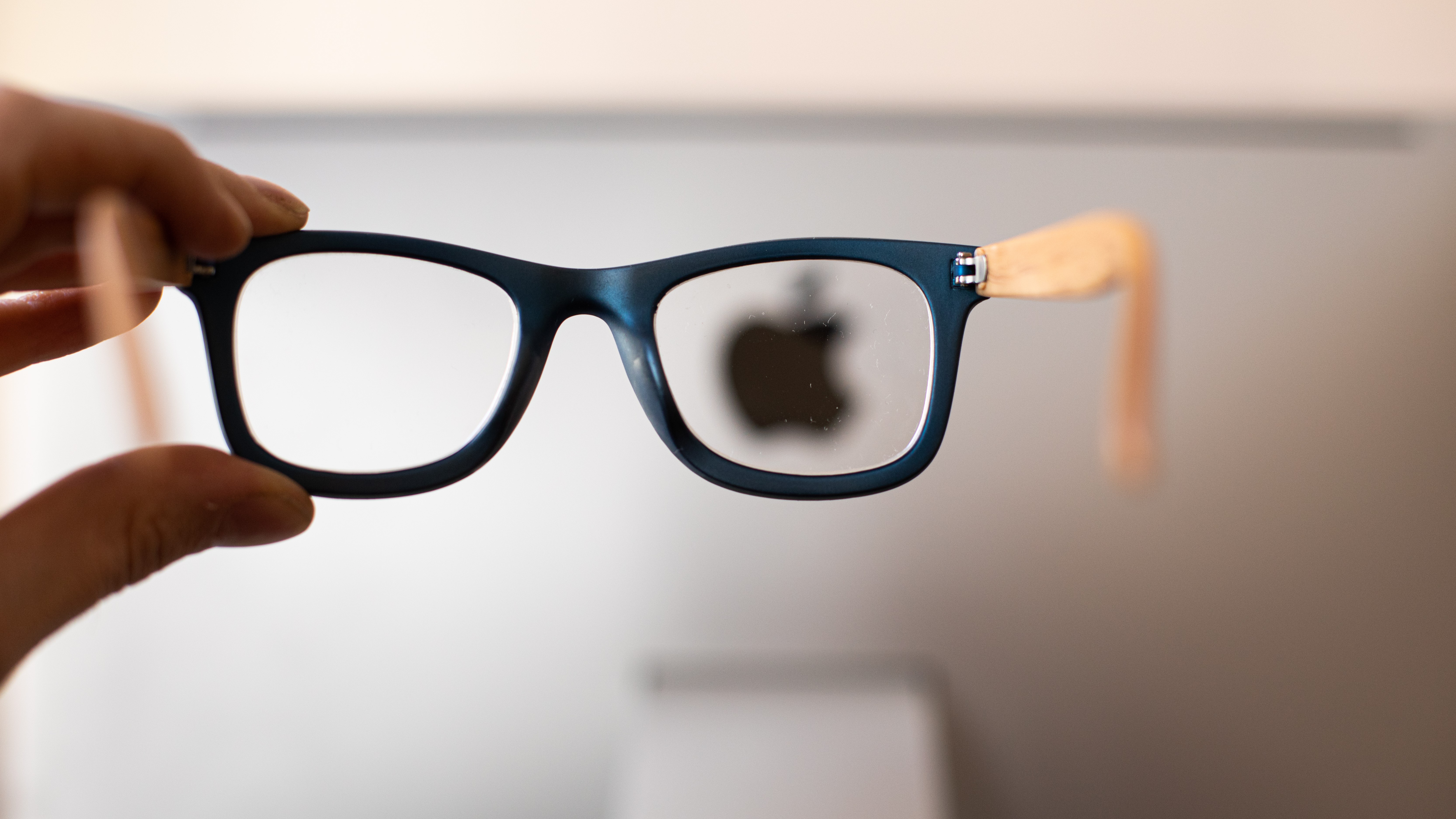New Meta XR glasses again tipped to land later this year – well ahead of Apple's rumored AR glasses with Apple Intelligence
Apple's rumored AR glasses could need more time in the oven

- Meta's smart glasses with a screen again tipped for 2025 launch
- They're expected to land in October and cost over $1,000 / £1,000 / AU$1,500
- Apple is also working on smart glasses according to rumors, but they're still some time off from launch
Meta's incoming AR smart glasses could eventually face an Apple-made rival with Apple Intelligence, according to new rumors. The details add credibility to other rumors we’ve heard previously and hint at a big AR glasses battle in the coming decade – though it’s a fight Meta has a big headstart on right now.
The information comes via Mark Gurman’s latest PowerOn newsletter (behind a paywall) where he details some insider reports of what the two companies are apparently working on.
Gurman’s comments support a few details we’ve heard previously about Meta’s upcoming glasses. They’ll be smart glasses like its existing Ray-Bans but will also have a display, they’ll be pricey (we’re talking over $1,000 / £1,000 / AU$1,500), and Meta is targeting an October 2025 release (which is when it usually releases new Quest and smart glasses hardware).
However, Meta is at risk of slipping from this target date. Gurman adds that “top managers on the team” have reportedly told their staff to pick up the pace – and in some cases employees may need to work through their upcoming weekends to achieve Meta’s goals.

There’s no word on when the glasses might be released if they miss their October deadline – we’re hoping they’ll fall this side of 2025 rather than 2026, though ideally their release date will arrive without any excessive crunch Meta's employees.
We've also heard the first signs of some potential pressure from Apple’s first smart glasses – codenamed N50.
Based on how Gurman describes them (“an Apple Intelligence device” that can “analyze the surrounding environment and feed information to the wearer” but stops short of proper AR) sounds just like what Meta has and is working on in the smart glasses space.
Get daily insight, inspiration and deals in your inbox
Sign up for breaking news, reviews, opinion, top tech deals, and more.
The issue? Apparently a launch is still some time away.
Gurman isn’t specific on when a launch might follow, but with Meta, Snap and now Google and Samsung (via Android XR) getting involved in the smart glasses space it seriously feels like Apple is giving everyone a major headstart.

Analysis: Will Apple be late or right on time?
Given its success with the Apple Watch and AirPods from both a portability and fashionability standpoint (the two key areas smart glasses need to succeed in), Apple has the potential to catch up.
But if its non-AR glasses do launch in 2027 that could coincide with when Meta launches full-on AR specs, according to leaked development timetables – which means Apple's rival runs the risk of being dated out of the gate. Then again, Apple’s delayed release will only matter if Meta, Android XR, Snap, and others can capitalize on it.
These other AR glasses might be out in the wild sooner, but if they’re expensive and lack innovative applications, they likely won’t be super popular. This could especially be an issue for Meta’s upcoming XR specs, as the existing Meta Ray-Ban smart specs are already great and only continue to get better thanks to software updates.

A display would be a significant enhancement, sure, but it doesn’t yet seem like an essential one – especially when you consider the display-less specs start at just $299 / £299 / AU$449 and are already the best AI wearable around.
On the other hand, if the upcoming Meta and Google XR glasses can match even half of the cool uses that I experienced on the Snap Spectacles during my demo, then they have the potential to take people’s perception of XR technology to new heights. That would be an exciting prospect, and a high price would seem significantly more justifiable.
We’ll just have to wait and see what Meta, Apple, and Google have up their sleeves, if and when their next-gen XR glasses finally release to the public.
You might also like

Hamish is a Senior Staff Writer for TechRadar and you’ll see his name appearing on articles across nearly every topic on the site from smart home deals to speaker reviews to graphics card news and everything in between. He uses his broad range of knowledge to help explain the latest gadgets and if they’re a must-buy or a fad fueled by hype. Though his specialty is writing about everything going on in the world of virtual reality and augmented reality.
You must confirm your public display name before commenting
Please logout and then login again, you will then be prompted to enter your display name.